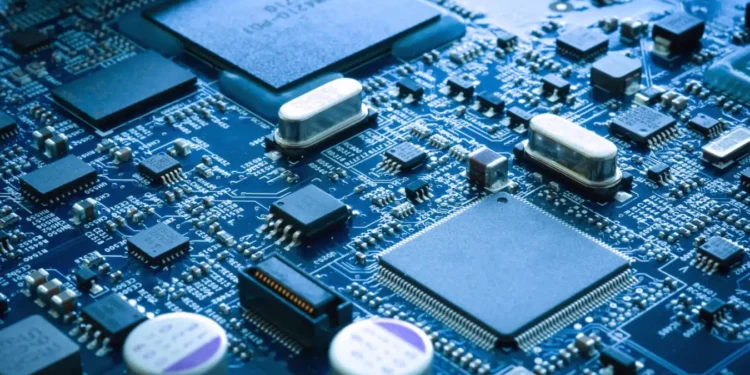Emirati AI powerhouse G42 is making significant strategic moves to reshape its technological footprint, seeking to reduce reliance on single suppliers and align with U.S. tech leadership, driven by geopolitical shifts and growth ambitions.
A Diversified Supply Strategy: Moving Beyond Nvidia
In a strategic pivot, G42 is actively diversifying its AI chip supply chain for the ambitious UAE-U.S. AI campus, aiming to scale beyond its traditional dependence on Nvidia. The company is in discussions with several major U.S. chipmakers(including AMD, Cerebras Systems, and Qualcomm) to deliver a robust and varied computing capacity at its future AI campus.
Attracting U.S. Tech Giants as Strategic Tenants
G42 is also courting a range of prominent U.S. tech firms(Amazon Web Services (AWS), Microsoft, Meta, and Elon Musk’s xAI) to become anchor tenants at the futuristic AI campus. Notably, Google is reported to be furthest along in these negotiations.
The Vision: A 5-Gigawatt AI Campus Powering a New Era
The proposed UAE-U.S. AI Campus, sometimes referred to as “Stargate UAE,” is designed to be one of the largest AI infrastructure projects globally, spanning 5 gigawatts of computing power over approximately 10 square miles. The facility, planned for launch in 2026, is set to support hyperscale AI workloads and deliver cloud services across the region.
This initiative was officially unveiled during former U.S. President Trump’s visit to the UAE in May 2025, in tandem with a series of landmark deals worth over US$200 billion.
Addressing U.S. Security Concerns and Export Controls
Despite the momentum, the project has not escaped scrutiny. U.S. officials continue to voice national security concerns, particularly about the potential diversion of advanced technologies to unintended parties. These concerns have slowed down approval processes for chip exports and raised questions about governance, personnel hiring, and oversight.
G42 has attempted to assuage these fears. CEO Peng Xiao emphasised that the UAE can “guarantee the safety and the security” of imported chips while aligning national regulations with U.S. standards.
Strategic Vision: “Digital Embassies” and Regional AI Sovereignty
The AI campus combines scale, sovereignty, and resilience in its design. G42 is also designing the facility in part as a “digital embassy”, offering foreign governments secure infrastructure to house critical data, shielded from disasters, cyber threats, and cost volatility.
Geopolitics and the Economics of Diversification
- By engaging multiple chip suppliers, G42 aligns with U.S. priorities to secure supply chains and mitigate geopolitical risks associated with overdependence on single vendors or adversarial technologies.
- Economically and technologically, this multi-vendor approach enables G42 to leverage specialised hardware(like AMD’s memory-rich GPUs, Cerebras’s wafer-scale engines, and Qualcomm’s edge accelerators), optimising efficiency across various AI workloads.
Why It Matters
| Theme | Implication |
|---|---|
| Tech Sovereignty | G42’s strategy helps the UAE secure and scale AI infrastructure independently. |
| Geopolitical Positioning | It strengthens ties with the U.S. while navigating the complex regional tech landscape. |
| Diversified Capabilities | Using multiple chip architectures allows optimised performance across AI applications. |
| Security & Trust | Transparent alignment with U.S. export and governance standards positions the UAE as a trusted partner. |
With the AI campus still pending final approvals amid U.S. security reviews, G42’s efforts show a keen awareness of the intersection between technology, geopolitics, and economic growth. As negotiations continue and infrastructure takes shape, the project remains a bellwether for how global AI alliances may be structured.














